Legally Blonde: A Classic Case of “Never Judge A Book By Its Cover”
In a world where judgment can come in any form, the story of ‘legally blonde’ explores the bias a person can face due to the stereotype attached to the person’s appearance. The owner of the blonde hair in the movie (The protagonist- Elle Woods) personifies the ‘blonde identity’ in American society. In the west, especially in the USA, being a blonde woman is equated to a beautiful person with no academic intellect and no serious ambition in life and is a double-edged stereotype as it compliments a person on external beauty but bludgeon the intellectual caliber. The article is in III parts. Part I deals with a brief introduction of the movie for readers who are not familiar with the plot. Part II entails the attribution theory in social psychology and its relationship with fictional and non-fictional events. Part-III is the conclusion.
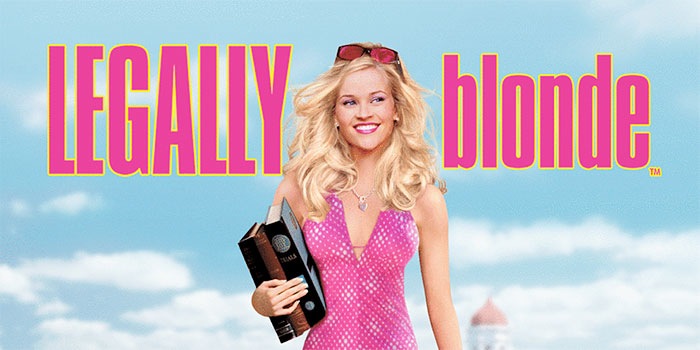
Introduction to fictional world
At the beginning of the movie, the protagonist is presented as the antithesis of intellectual pursuits. In contrast, in the world of the protagonist and the world of people who pursue law, Her own father describes law school as a place for people who are “Boring, ugly and serious”. The movie then takes on to dismiss the above-mentioned stereotypes when Elle Woods enrolls in Harvard Law School to become a lawyer and prove everyone wrong, especially her ex-romance who rejected her on the grounds that a bright future can never be realized with a blonde woman such as herself because she is not a serious person in the conventional sense.
However, attribution theory and stereotypes play a very important role with respect to the decisions the characters around Elle land on. It is discussed later in the article but a brief introduction of attribution would be- “ In social psychology, attribution is the process of inferring the causes of events or behaviors”. Now, this is extremely circular, because, one would assume intelligence level because of stereotype and then attribute a particular instance to that stereotype and reinforce the original position on intelligence correlation and thus creating an echo chamber where pre-conceived notions are stored and sustained.
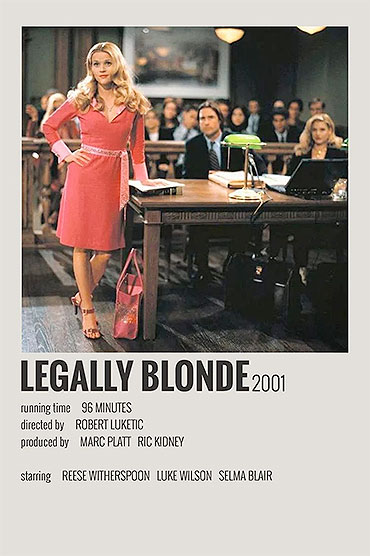
Coming back to the movie, while analyzing the characteristics of the protagonist we find that she possesses the conventional smart person traits, i.e. excellent memory, thinking skills, and dedication but she applies these skills in a different field like beauty, fashion, and lifestyle choices. However, when she arrives at law school, she starts applying the same raw skills in the legal discipline and exhibits her own flashes of brilliance. Despite all of these aforementioned skills, there is one fundamental trait of the protagonist which stands out and that is her goodness of heart, optimism, and politeness when required which in turn can make her immediately well-liked.
At last, she was able to win the case of her client in this movie using all her abilities but most importantly disagreeing with a very fundamental notion that is prevalent in the legal community which makes most lawyers think that winning is the ultimate goal and not the pursuit of truth. Woods implores everyone around her to believe in the innocence of her client but other lawyers in the firm refuse to do so, yet, she firmly stands behind her client and fights for her case with a passion which proves to be an effective means to her victory as it drives her evidence collection, cross-examination, and analysis of the factual matrix of the case.
Her entire approach can be summed up beautifully in her Harvard Law School graduation speech where she says that she begs to differ with Aristotle on the adage that “The law is reason free from passion” and proposes that passion and commitment can help an individual both practice law and live life in a better way. In a way, this thinking can be fruitful because to say the reasoning is without passion imputes an objective element on the ‘truth’ and rejects the idea that different people can have their own version of ‘truth’, in simpler terms, this is the subjectivity which forms the basis of the law as it is not black and white but comes in many colors and the protagonist picks her own color in the movie and stands by it.
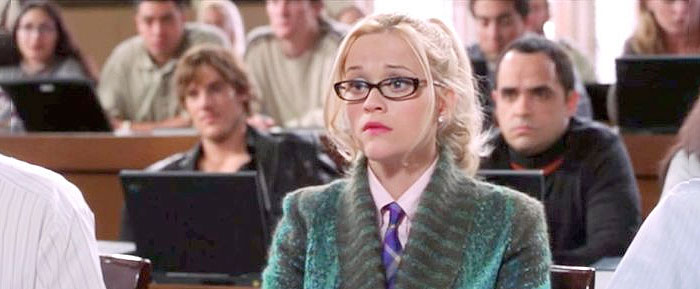
Attribution theory and real life analysis
However, another interesting perspective that comes out of the movie is when you observe how the practical world really works. The immediate response of any sane individual would be that this movie is just Hollywood entertaining the ‘feel good’ genre and has nothing to do with how the real world operates. Think about it, is anyone among us immune to making judgment calls? We live in a society where claiming that you don’t judge someone on appearance fetches reward points, the premise here is that not judging someone is praiseworthy because that is not something you expect people to do. Again, it would be a gross generalization if I state that everybody behaves this way but my observation has been that due to social conditioning you will have to resist the need to not judge someone rather than it being a ‘normal’ reaction.
Attribution theory in social psychology would tell us that there are two types of attributions, situational and personality. The former impute the conduct of a person to a particular situation and then draw conclusions. For example, one would say that one’s friend is cranky because of working late nights for exam preparations and would understand that it would go away. These types of judgments are short-lived because they are situational. The latter comes into the picture when you judge someone and attribute a personality trait to them.
For example, if a friend is cranky and at the same time the said friend is short-tempered, which may or may not be a correct observation but would lead an individual to attribute this short-temper to the current state of behavior and this type of judgment is more concrete because this would stay even when that friend does not exhibit this type of behavior because the aforementioned incident has reinforced the judgment about said friend’s personality traits.
Coming back to the movie once again, we need to understand how judgment based on appearance works with situational and personality attributions. Generally, we take the stereotype based on appearance as the bedrock for our judgment formation and then use both situational and personality attributions to supplement this position. The stereotypical blonde image is something which the protagonist carried with her everywhere but this in itself is not at all a problem because who among us would not like to carry what we really are.
For example, in her video essay for Harvard, she was able to convey her motivation and qualification for law school without altering her core personality and successfully presented herself as a qualified candidate. Now, it is up to serious debate whether an identical approach would work in real life but it is the principle behind this element which is of importance. However, the movie is not immune to criticism as Elle’s motive for entering law school was to win back her love and one can question that if it were not for the desire to get back together with the boyfriend who broke up with her, would she have ended up at a law school? It also goes against the principles of self-love, self-respect, and other aspects that the movie so dearly portrays.
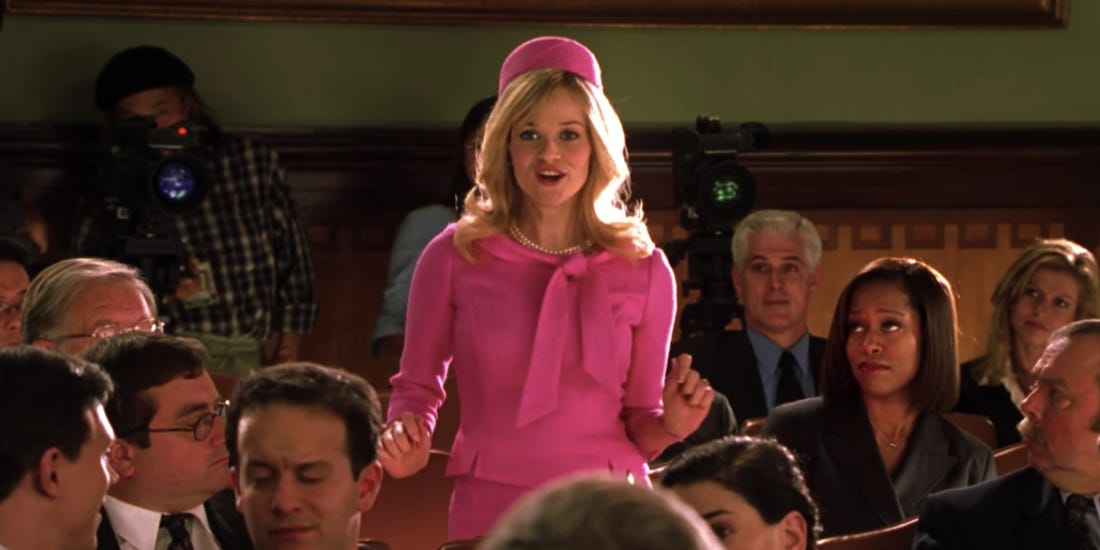
The problem highlighted by the movie is when negative stereotypes impede the lead character’s ambitions as she has to overcome these obstacles in order to achieve her dream. This should never be normal for any person. Personality attributions go hand in hand with any stereotype and in this case, it is the dumb, quirky, and not-serious traits which characters around her attribute to her.
Now, let us discuss the aggravated case of situational attribution in judgments based on stereotype; It is what one would call a reinforcing attribution as in this case because people use it to reinforce their judgment rather than using it as a temporary form of attribution in which the person under judgment is usually given leeway because of the situation and the judgment perishes when the situation is over.
In one of the scenes in the movie, the character is under pressure because she believes in the innocence of her client while other people in the firm want her to look at things more pragmatically, it is apparent that they were only able to comprehend the situation as lead character displaying naiveness and nothing more and on some level attribute it to the stereotype they hold.
An analysis of the movie from a feminist lens would greatly affirm the idea that this movie has all empowering trends associated with feminism. A woman is able to overcome the stereotype attached to her appearance coupled with her gender because a blonde man would not have faced the same problems which Elle faced in legally blonde. However, the premise of the movie can easily be confused with the perpetuation of beauty and fashion being branded as essentially feminine characteristics but there more to it than meets the eye.
The fundamental idea as explained earlier in this article is to not change one’s attributes because of preconceived notions about them but rather use them to your advantage; A solution to avoiding stereotypes is to destroy them and this is exactly what Elle achieves by the end of the movie. However, one should not misunderstand this by believing that inflicting stereotype-based judgment is alright if the opposing party is nonchalant about it and not doing anything. An easier way to understand would be to segregate stereotypes into two kinds; Physical attribute-based and social-based. It can be based on either how you look or your so-called position in the social structure, anything else is more or less transient or forms part of situational attribution. All these stereotypes or judgments will exist for as long as one is part of a functioning society because that is how human beings have developed themselves to adapt to diversity among ourselves. But, it is our duty to not succumb to them.
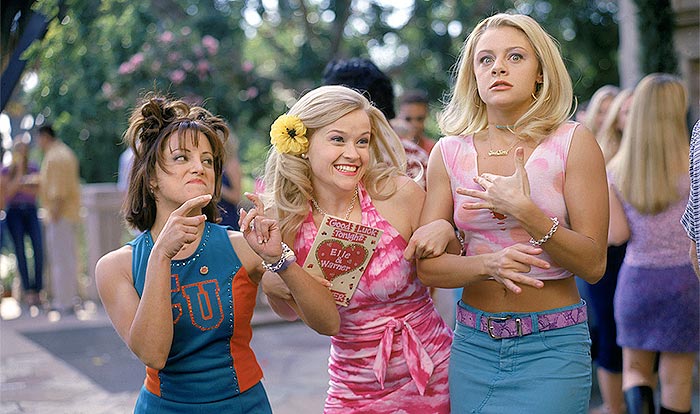
Amidst all this chaos, it is important to not let the negative opinion of anyone else hamper one’s goals and objectives because it is not a personal duty to discredit someone’s opinion but it becomes an obligation when it is in way of one’s success. A Feminist understanding would allow an individual to understand that in place of Elle if a man with an interest in sports cars and baseball would have entered law school, perhaps, he would not have been subjected to the same discriminatory treatment. This is because the so-called feminine traits even in the year 2020 are seen as weak and anti-intellectual by a disturbing number of people. Likes, dislikes, preferences, and attributes differ greatly between individuals rather than different groups such as blondes and brunettes, white and black, etc. These differences between individuals and not groups would allow us to disconnect the link between traits like intelligence, honesty, compassion with physical and social stereotypes.
At last, it should be a sincere effort to resist our urge to judge others on their appearance, situation, societal position, and personality and I use the word ‘effort’ because of my strong belief that formation of judgment is only natural given the social conditioning each and every one of us go through. However, with respect to personality, there should be exceptions. For Example, if somebody has been consistently displaying negative traits, you might choose to avoid them but personality attributions must not be done on the basis of appearance and stereotype alone. Finally, there is always an option to persevere and destroy the opinion of others if it is running adversely to your own hopes and desires and carve out a way where such negative perceptions can’t thrive. As they say for judgment, it’s sweet till the moment you are on the receiving side.
What do you think? Leave a comment.











Fantastic analysis. I always valued Elle as fantastic human being deep in my heart, although most people watching this movie just reduce her to “dumb and dramatic but funny”.
I wish I had understood the true meaning of this movie when I was a kid. I spent my whole life denying my femininity and tried so hard to not be like the “other girls” because I didn’t want to be looked down on. This hardened me and made me feel isolated from people who could be my friends and also gave me very low self esteem. When watching this movie I just thought of Elle as a joke and never realized how amazing she was. I’m now an adult, but I don’t think it’s too late to learn to be more like Elle.
I think so many girls – myself among them – sought to deny their femininity. Now I am older (and hopefully wiser), but more importantly that I have a daughter, I realise that so much of that was internalised misogyny. There is nothing wrong with feminine traits and if my daughter wants to be ‘girly’ I will teach her that there is nothing wrong with that, and that she can still be strong and smart. The only important thing will be to stay true to herself and be a good person.
The movie is a “Broken Aesop”:
We’re not suppose to sympathize with Warner, and it’s clear he’s a shallow, idiotic jerk for rejecting Elle (as well as not telling Elle that he’s already engaged to someone else), BUT if it weren’t for him saying that he wanted a “serious” wife, then Elle would never have gone to Harvard law school to get him back.
Granted she stays at Harvard Law School for four years, even after she realizes that Warner will never take her back, but still, the fact that her motivation for going to Harvard revolves around getting her man back does rub me the wrong way.
The movie would have been stronger if it were about a West Coast, blonde woman going to law school ON HER OWN TERMS (and not because of a man), and while she’s there, she experiences sexism and “dumb blonde jokes”, and therefore learns to not let the bullying get to her.
When I first saw this movie I thought Elle was the life action version of Barbie and I really mean that in best way. I grew up with the older Barbie movies (starting with Nutcracker and ends around Fashion Fairytale) and I genuinely saw the roles Barbie played in those movies as a truly kind, clever, compassionate, confident, adventurous person and before someone told me of the trope “dumb blonde” I never thought of it that way. In fact, my better and competent teachers during my kindergarten and first grade teachers blondes while the incompetent and a little too laid back person was a brunette so I didn’t see anything about hair colors being associated with brains or beauty, but after growing up and consuming the more teen/YA/adult stuffs where blondes and brunettes are put into categories and put against each other I feel myself being affected more and more. This is really tells you the importance of the media you consume as well as how children slowly become affected by social prejudices. It’s really scary.
My actual icon.
I think this movie is so important. Especially being from the early 2000s when movies were riddled with the dumb blonde stereotype. A great analysis 🙂
This was an important movie in its time.
This was the first movie I ever saw where the supposedly girl enemies fighting over the man decide to ditch him and go on to become friends. And it impacted my whole attitude towards female friendship into something much more wholesome.
I love her supportive friends. It’s one of the things that i like about the movie.
A man once said to me, “the current world is dictated by masculine energy. If we had more feminine energy govern the world, it would be transformed into something so much better than what we know now.”
I think Elle embodies that.
I really adored Elle’s personality. Her genuine kindness, ability to be herself as well as being able to be that socially active was something I thought was amazing, especially as someone who has trouble making friends. Vivian I could relate to on a surface level as the “serious brunette” stuff but I could not relate to her flaunting the ring and being mean to Elle; as a fellow brunette I expected better from her.
Elle Woods shows that women that are feminine and considered as superficial barbie blonde can be as intelligent as anyone can be. I realised thru the years than even some teachers wouldn’t take me seriously because I was too « Elle » and when I started playing football/(soccer), or when people saw me being a intelligent girl they’d be extremely surprised. Honestly even my mother is scared that colleges won’t like the « blonde » aura I give, but I will Elle Woods it! Thanks to this I also learned to stand up a lot and fight for myself. 🙂
I appreciate “Legally Blonde” for deconstructing “dumb blonde” stereotypes and how Elle’s “Chekhov’s Skill” (her knowledge of fashion labels and hair products) wins the case at the end.
This made my early morning. As a law student, so much of this rings true. God, I love this movie. 😌
The problem I had with this movie is that the reason she got into law school was because the all male admissions team was attracted to her admissions video, so it’s kind of like she used her sexuality to get in, not hard work like most of everyone else (with exceptions of the people who got in via relations).
One of the issues with the movie is Elle’s lack of true passion for anything. In the beginning of the movie, she was passionate about fashion, and love. Only to be passionate about law at the end of the movie. The problem is she finds her passion for law by happen stance. One could assume she would find passion in anything Warner was interested in. If Warner went to med school, would Elle be passionate about medicine? Perhaps Elle is passionate about whatever she puts her mind to.
Or perhaps she’s a passionate person who’s not always sure where to put said passion. Or, she feels her passions are inadequate. Once people at Harvard find out Elle is a sorority sister and fashion maven, they immediately pigeonhole her (“maybe there’s like, a sorority you like, join instead, like.”) Elle absorbs this, confiding in Paulette that at Harvard she felt like “for the first time, [I was expected] to be more than a Victoria’s Secret model.”
Did Elle start out interested in law because of Warner? Yes…actually, she wasn’t even interested. But I always read her journey as, once she started being her own person, she found ways in which the law fit her interests and personality. For instance, you have to understand people to understand the laws that people enact, enforce, or break. As a bubbly, extraverted person, Elle is already a “people person,” and she shows herself to possess a lot of interpersonal intelligence.
there was a lot of of stereotypes back in the 90’s where its either youre smart or pretty, she proved you can be both <3 i love this movie
Her positive passionate attitude reminds me of Leslie Knope.
Elle has always made my soul shine a made me feel powerful. I used to watch these films over and over because I find them inspiring even to this day. Now I know what’s behind it! ^^
Great analysis, quite relevant. Appreciate the 3 pillar analysis.
The author has done a brilliant job by capturing the true essence of this movie. It’s inspirational and urges one to grown into a better person.
To me I think it’s more about how we shame femininity. We assume girls who act girly and embrace girlishness are dumb, superficial and one dimensional. Elle embraces everything people expect from women. She loves to keep up with her appearance, she loves pink and loves to party. We assume women like that aren’t smart and are obsessed with vanity. That where the “I’m not like other girls” girls come from. They’ve been taught that being girly is something to be ashamed of and therefor strive to reject that.
*Applause.* You can even see that in the little details, especially the differences between Elle and Vivian. Elle wears pink, sparkles, and makeup; Vivian wears tailored blouses, cardigans, and pearls. Elle is characterized as a pretty “Marilyn”; one of the jabs she levels at Vivian is “bony, unpolished…not completely unfortunate-looking” (the latter being a euphemism for ugly). It reminds me of that stupid saying, “Men seldom make passes at girls who wear glasses”–okay, but they don’t want girly “airheads,” either? What *do* they want? Sheesh, no wonder women need (ed) a movement!
Most blondes nowadays are actually brunettes with a dye job.
I would love to be friends with Elle!
This movie is the reason I’m gonna be a lawyer.
Apparently there is discrimination toward hair colour. And i think our problem as female isn’t the differences between us, but envy towards others that somehow we see each other as rival. I don’t understand how or why that happens.
Oh, yes. The rivalries women can come up with are serious and cruel. I’ve heard it said that males will compete, males will engage in rivalry, but they will eventually come to a place of camaraderie. Women, on the other hand–and I know this from painful experience–women will rip your freaking throat out and smile while doing it. There’s a whole host of reasons for this, but some of it probably goes back to, we’ve been characterized as “the weaker sex” for centuries, and instead of supporting each other, we turned on each other. As in, “She may be weak, but darned if I’ll be. Out of my way.”
We know that Elle is smart from the beginning, the only thing I didn’t like was the fact that they sort of made fun of her major in fashion merchandising in real life she would have gotten in no matter what, she got 4.0 in a business major from UCLA, lots of extracurriculars, a nearly perfect LSAT (179 is nearly goddamn unheard of) and no financial aid. They wouldn’t have discussed it as much as they did in the movie, she would’ve been in in a second. She could’ve gotten into Yale if she wanted.
I have one thing to say about pretty girls – not BLONDE girls – being associated with being dumb, superficial, and sometimes even mean (like most of the Plastics in Mean Girls). As an Asian I have seen many pretty brunettes and many not so pretty brunettes. The pretty ones usually tend to focus more on their looks than academics because they do not feel the need to be validated or appreciated by their brain because their looks are enough for them to get what they want. In contrast, most of the not so pretty ones focus on school work because it is the usually the only way to have any chance to find her place or to have a voice because people naturally gravitate towards the pretty ones whether they’re right/good or wrong/bad. It’s a generalization but it does tend to happen. Of course, there are also women who were pretty and academically accomplished, but they are surprisingly rare from what I have seen. People like to go the easy way and for those who are naturally pretty, tending their looks is the easy way. For those who aren’t pretty (at least in their childhood) have a better chance of being recognized if they do well in school.
This is the type of movie that makes you feel happy.
Elle is the textbook example of what I always say when u chose to truly know who u are and be it u give others permission to do the same. She’s extremely powerful in getting what she wants because to Elle it’s all part of the process to getting what a wants.
Agreed. Elle is a perfect example of a powerful manifester . She’s so focused on what she wants it’s not even a consideration that she won’t get what’s she wants.
This is one of the movies that changed me entire outlook on life and myself. I was ready to bash this movie, but after watching it, I felt like I understood myself better.
Elle expresses her qualifications without changing her core personality. YES! That’s what I love about her, and about Legally Blonde in general. It comes across as a comedy based on stereotypes, the “dumb blonde” stereotype in particular. But the deeper you delve into it, the more you see that Elle is a sharp, intuitive woman who smashes those stereotypes in the friendliest and most approachable way possible.
A good essay on a movie I enjoy.
This movie was definitely ahead of its time. As others have pointed out Elle is a character that is unapologetically feminine at a time when being “different” from other girls was considered feminism. Watching the movie from a different lens now shows just how well developed all the female characters here really are; they’re all different but they’re all tied together by their femininity and drive.
Elle Woods is beautiful example of girl, that can do anything in her power to be with the person she loves but was ridiculed by almost everyone because of her desires, even that person thought she wasn’t serious. That pushed her to be more of herself and to find a better boyfriend. So, love made her made a better life situation for herself.
I would recommended this film to everyone who is in a bad mood, it’s light, funny and enganging to the end.
We must unpack and address (as you did here) the idea that feminine traits and appearances are deemed weak. While at the same time, masculine traits are associated with power or, at the very least, no judgment. The patriarchy rules every sector of society, pushing this harmful narrative that only a particular type of person (primarily straight males) can achieve the status and power that law school can bring. However, we have Elle Woods and many other individuals to remind us that we must debunk and shut down this misogyny. Great work!